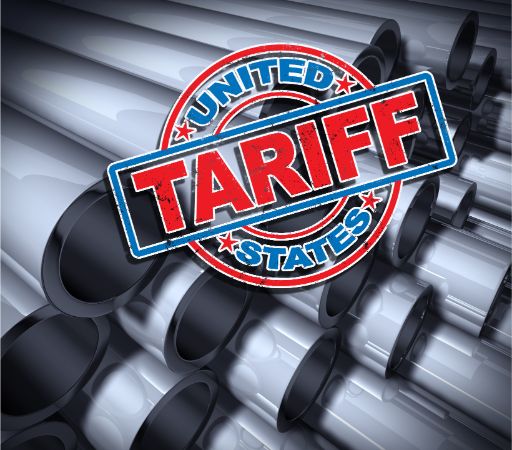US Tariffs on Steel and Aluminum: Impacts on Small Businesses
As President Donald Trump enacts a significant increase in tariffs on imported steel and aluminum, small businesses across the nation brace for potential price hikes. This article explores the implications of the 25% tariffs for various industries, particularly focusing on the craft brewing sector.

On a typical canning day at Tascal Brewing in Oakland, California, workers are busy preparing to fill 6,000 aluminum cans with craft beer. However, this routine operation is about to face a new challenge—next month, the cost of these cans is likely to rise due to President Trump’s recent executive order imposing a 25% tariff on imported aluminum, up from a previous 10% rate. Steel imports will also see a similar tariff increase, as the administration aims to bolster domestic manufacturing by reducing reliance on cheaper foreign imports.
Trump's initiative, framed as a step towards "making America rich again," targets the struggling US steel and aluminum industries, which have been under pressure from lower-priced imports. Currently, about 25% of the steel used in the US is imported, with significant quantities coming from Canada and Mexico. The country also relies heavily on Canadian suppliers for nearly half of its aluminum needs.
While the administration anticipates a revival of domestic production, experts warn that the immediate effects could be detrimental for many other sectors. The increased costs of steel and aluminum could ripple through various industries, from construction to automotive, ultimately affecting consumers. Steel and aluminum are essential materials used widely across many applications, and price escalations could lead to higher costs for goods and services.
At Tascal Brewing, the shift from glass bottles to aluminum cans over the past decade has made the brewery particularly vulnerable to these tariffs. The CEO expressed concerns about the potential for a larger trade war, emphasizing that any increase in supply chain costs could threaten the viability of small businesses. "For a lot of small places, it could mean the difference between being open or closed," he noted, highlighting the precarious position faced by many in the industry.
The tariffs are set to take effect on March 12, prompting small businesses to reconsider their pricing strategies and supply chain logistics. As the brewing industry grapples with the potential impacts, many are left wondering how these changes will shape the future of their operations and the broader market landscape.
As the situation develops, small businesses will need to adapt quickly to the evolving economic environment influenced by these tariffs. The balance between supporting domestic industries and managing costs for consumers remains a critical challenge.
What's Your Reaction?














